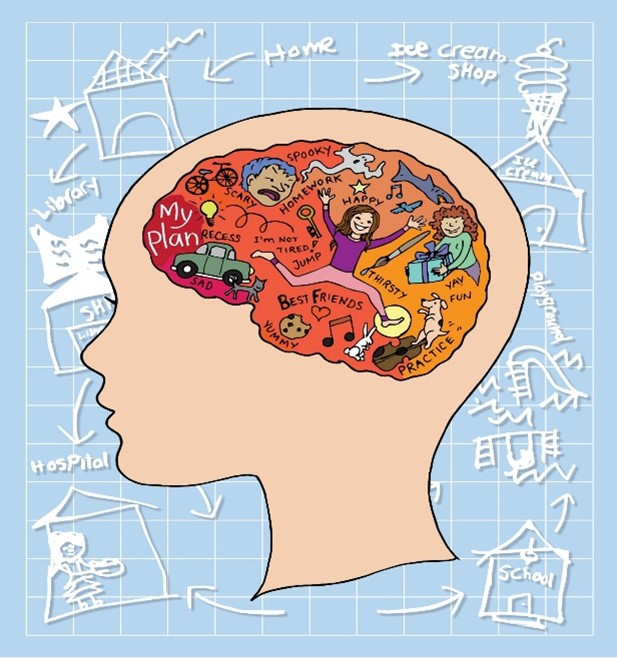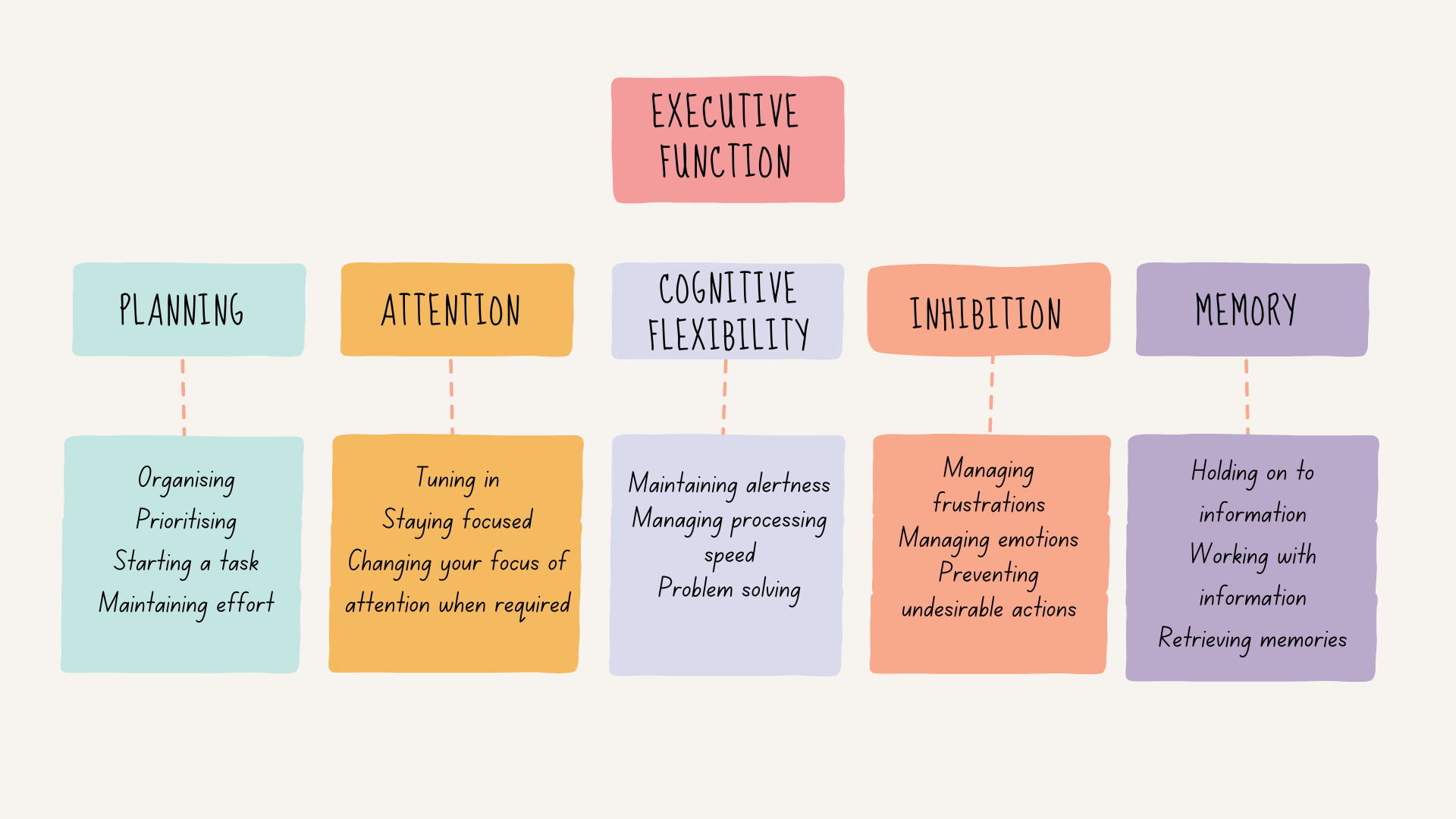UNDERSTANDING EXECUTIVE FUNCTIONING (EF)
The Hidden Curriculum
Typically not part of a school’s curriculum, these skills are crucial for students to learn and show what they’ve learned.
What are they? EF are a set of cognitive processes that help regulate thoughts, actions, and emotions to achieve goals. These functions are crucial for problem solving, decision-making, planning, organisation, self-control, and flexibility.
EF is controlled primarily by the frontal lobe of the brain which until early adulthood is not fully developed. One hears children and teens referred to as lazy, unmotivated, even defiant but they do not have the skills to do what they are required to do…they are just not there yet. EF is not something we grow into; they need to be taught and neurodiverse kids may take even longer!
Key challenges for so many kids today:
- Struggle to know the steps needed to complete a task;
- Tend to focus on the NOW and lack future thinking;
- Easily overwhelmed by the enormity of a task and shut down;
- Focus on perfection;
- Struggle to prioritise;
- Procrastinate;
- Struggle to get started;
- Trouble with focus;
- Lack organisational planning and time management skills.

Psychology Today. Executive Function in the brain.
The combined pressures of academic expectations and social media can significantly impact the executive functioning skills of children and teenagers. Academic pressure often leads to heightened stress levels, as students juggle multiple assignments, exams, and extracurricular activities. This stress can impair executive functions such as planning, organization, and time management, making it challenging for them to effectively prioritize tasks and meet deadlines.
Additionally, the constant exposure to social media creates a distraction-filled environment that further impedes concentration and focus. The need to constantly check notifications, respond to messages, and keep up with the latest trends can disrupt cognitive processes and hinder problem-solving abilities. Moreover, the pressure to maintain a desirable online presence can exacerbate self-doubt and anxiety, impacting emotional regulation and decision-making skills. Ultimately, the convergence of academic and social media pressures can undermine teenagers’ executive functioning, making it imperative for them to develop coping strategies and seek support to mitigate these effects.

Using a standardised assessment, specific information is gathered to help the person with ‘executive dysfunction’ showing where and why they struggle and how to help. Developing EF skills takes time and effort, but with practice and persistence, improvement is achievable. The success of the coaching program depends on creating a safe and supportive environment that empowers children and young people to thrive personally, academically, and socially.
There has been a significant increase in the amount of information kids are bombarded with daily. The time to teach EF is crucial, now more than ever.
For more information, please contact Adele using our contact form.
